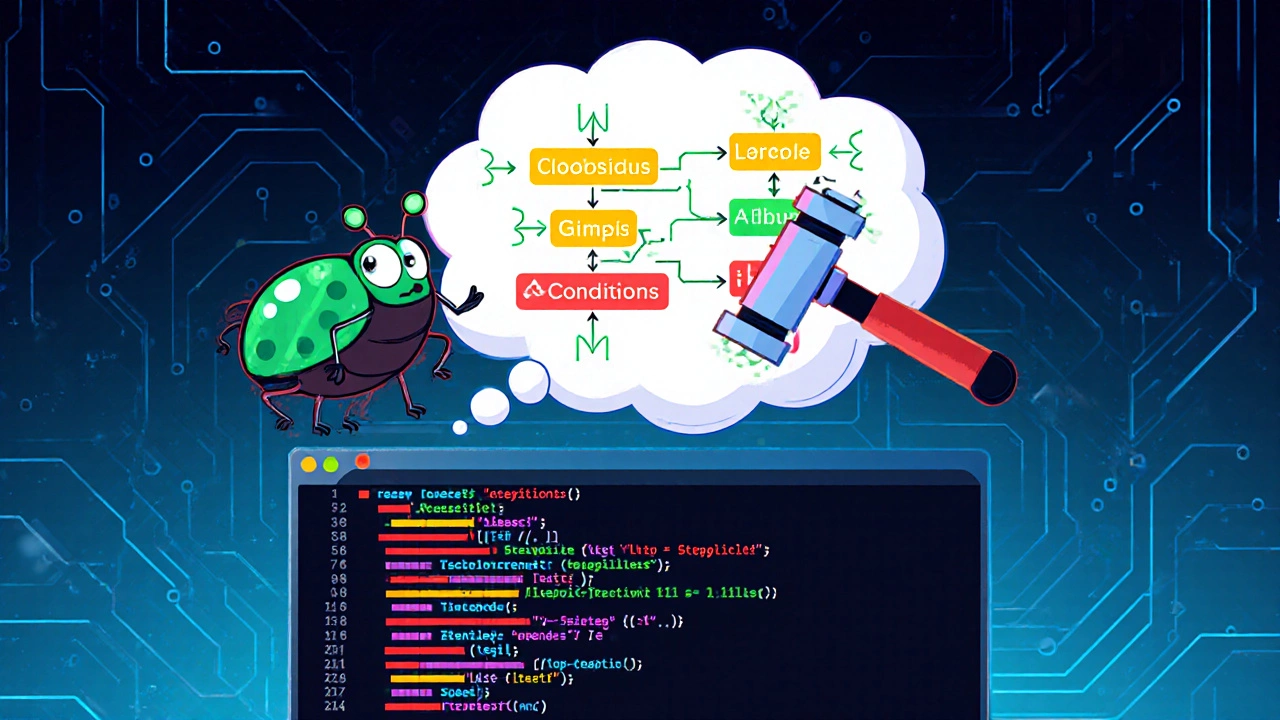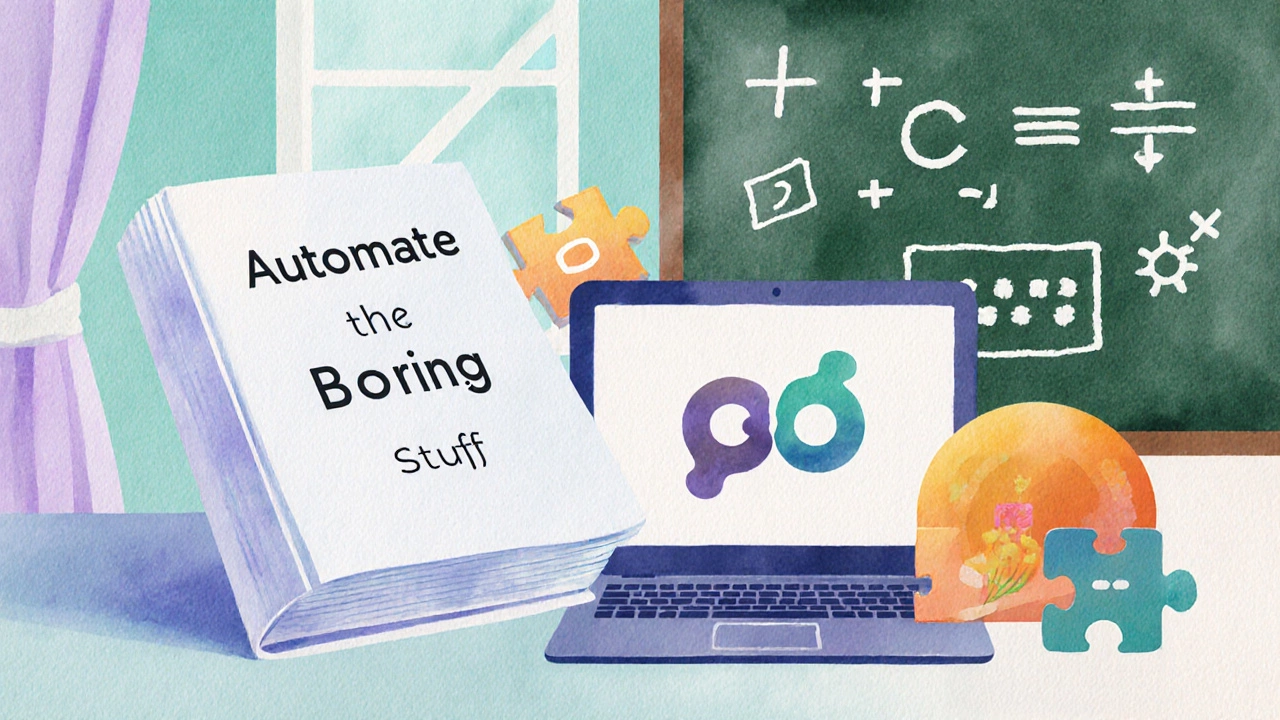When you hear the question coding vs math, it usually sparks a quick debate: “I’m terrible at numbers, so programming must be easier,” or “I can’t make sense of syntax, so I’ll stick to formulas.” The reality is messier. Difficulty depends on the skills you bring, the way you learn, and the specific tasks you face. This article breaks down the factors that make coding and math feel hard, helps you pinpoint where your strengths lie, and offers practical tactics to level up in either arena.
How We Judge Difficulty
Before we pit the two subjects against each other, we need a common yardstick. Difficulty isn’t a static property; it’s a mix of cognitive load, prior exposure, and the type of problem you’re solving. Here are three lenses to view it through:
- Cognitive demands: Does the task require abstract reasoning, pattern recognition, or step‑by‑step execution?
- Learning curve: How steep is the initial drop‑off before you start seeing progress?
- Resource availability: Are there clear tutorials, community help, or real‑world examples you can lean on?
Both coding and mathematics score high on some of these dimensions, but the balance shifts depending on the individual.
Coding: What Makes It Tough
Coding is the process of writing instructions for computers using programming languages. The challenges often stem from three core areas:
- Syntax traps: Every language has its own set of rules-missing a semicolon or misplacing a bracket can break an entire program. Unlike a math equation where a single misplaced term usually affects only that part, a syntax error can stop the whole code from running.
- Logical flow: You need to think in terms of control structures-loops, conditionals, and function calls. This demands a clear mental map of how data moves through your code, which can be hard for beginners who are used to linear, step‑by‑step instructions.
- Debugging mindset: Finding and fixing bugs isn’t just about spotting a mistake; it’s about hypothesizing, testing, and iterating. That trial‑and‑error loop can feel frustrating when you’re stuck on a single line for hours.
On the flip side, coding offers immediate feedback: run the program, see the result, and adjust. That rapid loop can make learning addictive once you get past the initial syntax hurdle.
Mathematics: What Makes It Tough
Mathematics is the abstract study of numbers, structures, space, and change, often expressed through formulas and proofs. The difficulty usually arises from:
- Abstract concepts: Topics like limits, vectors, or group theory live far from everyday experiences. Without concrete examples, the brain has to create new mental models from scratch.
- Layered reasoning: Proofs and problem‑solving often require you to combine several theorems in a single argument. Missing one piece can collapse the whole solution.
- Symbolic fluency: Math uses a specialized language-Greek letters, integrals, summations-that must be read and written fluently, similar to a programming language but with less visual feedback.
Math also tends to reward incremental mastery. Mastering fundamentals (like algebra) paves the way for advanced topics (like calculus). Skipping steps can make later material feel impossible.

Side‑by‑Side Comparison
| Attribute | Coding | Mathematics |
|---|---|---|
| Initial learning curve | Steep due to syntax and environment setup | Moderate; concepts build on each other |
| Abstractness | High when dealing with algorithms or architecture | Very high for advanced topics (e.g., topology) |
| Feedback speed | Instant (run the code) | Delayed (check solutions after solving) |
| Common obstacles | Syntax errors, debugging, API overload | Proof construction, symbol manipulation, intuition gaps |
| Best learning style | Hands‑on, project‑based, iterative | Theoretical, practice‑driven, proof‑oriented |
The table shows that neither discipline is universally harder; each presents a unique set of hurdles. Your personal preferences and background will tip the scale.
Personal Traits & Learning Styles
Think of yourself as a mixture of two profiles:
- The Visual‑Logical Thinker: You thrive on seeing data flows, diagrams, and step‑by‑step processes. Coding languages that emphasize visual debugging (like Python with Jupyter notebooks) often feel natural. In math, you might prefer geometry or graph‑based problems.
- The Abstract‑Theoretical Thinker: You enjoy playing with symbols and proving statements without needing a concrete picture. This mindset aligns well with higher‑level mathematics and algorithm design, where abstraction is the core.
Most people sit somewhere in between. Identifying which side you lean toward can help you choose learning resources that match your strengths.

Strategies to Tackle the Tough Parts
Regardless of whether you find coding or math harder, the following tactics work for both:
- Chunk the material: Break a complex problem into bite‑size pieces. For code, isolate a function; for a proof, isolate a lemma.
- Active recall: Test yourself without notes. Write a piece of code from memory, or sketch a proof outline without looking at the textbook.
- Explain to a rubber duck: Articulating your thought process forces clarity. It works whether you’re debugging a loop or outlining a theorem.
- Leverage community help: Stack Overflow for programming, Math StackExchange for math. Seeing how others phrase their solutions expands your own toolbox.
- Iterative practice: Spend 20 minutes a day coding a small script, then switch to solving a single algebraic problem. Consistency beats marathon sessions.
These habits reduce the mental overload that makes either subject feel impossible.
Resources to Boost Your Skills
Below are curated options that target the specific pain points mentioned earlier:
- For syntax mastery: "Automate the Boring Stuff with Python" (free online chapters) offers hands‑on projects that reinforce basic constructs.
- For algorithmic thinking: "Grokking Algorithms" breaks complex ideas into illustrated steps, ideal for visual learners.
- For abstract math: Khan Academy’s linear algebra series uses interactive graphs to turn symbols into visuals.
- For proof techniques: "How to Prove It" by Velleman introduces logic and set theory with bite‑size exercises.
- For blended learning: The "CS50" course mixes programming with mathematical foundations, showing how the two fields reinforce each other.
Pick one resource that aligns with your current struggle and stick with it for at least two weeks before switching. That focused approach yields measurable progress.
Frequently Asked Questions
Is coding really easier than math for most people?
Not necessarily. Coding feels easier for those who learn by doing and enjoy immediate feedback, while math can be smoother for people who think abstractly and love rigorous proof. Individual background matters more than any universal rule.
Can learning one skill make the other less hard?
Absolutely. Programming sharpens logical flow and problem‑decomposition, which are core to solving math proofs. Conversely, math improves analytical thinking and pattern recognition, useful when designing algorithms. Cross‑training reduces perceived difficulty in both areas.
What age is it best to start learning coding or math?
There’s no hard cutoff. Kids can start with block‑based coding (like Scratch) around 8years old, while basic arithmetic begins earlier. The key is to match the curriculum to the learner’s cognitive stage-introduce concepts when they can grasp abstraction, not a specific age.
How much time should I allocate daily to see improvement?
Consistent short sessions beat occasional long marathons. Aim for 30‑45minutes of focused practice, alternating between coding and math every other day. This keeps both neural pathways active without overload.
Are there any careers that require both strong coding and math skills?
Fields like data science, machine learning, quantitative finance, and robotics demand solid programming ability plus deep mathematical understanding. Even web development can benefit from algorithmic thinking, while pure mathematics research increasingly uses computational tools.





Write a comment